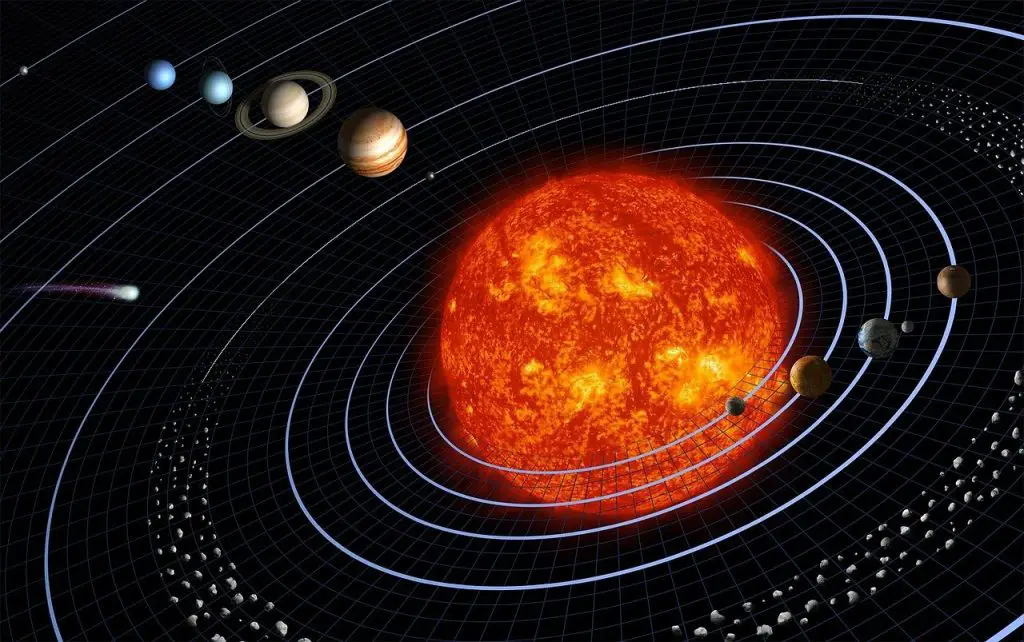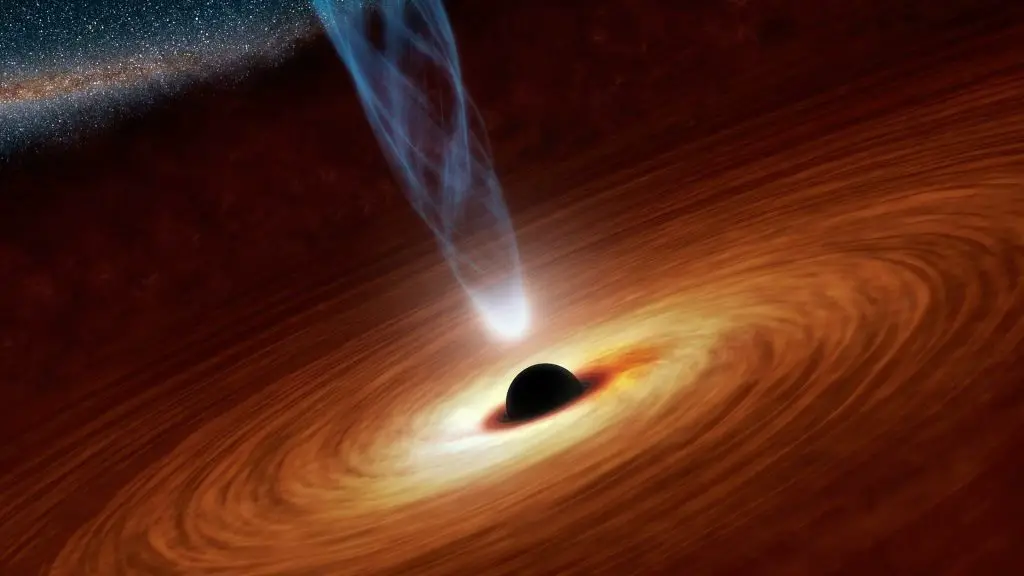The moon and Earth have formed around 4.5 billion years ago at different spots in the solar system. Scientists believed that the moon was formed around 30 to 50 million years after the birth of the solar system as a wandering body like asteroids and comets. However, as it flew past Earth, our home planet’s gravity captured the moon and it has remained tidally locked to Earth because of the gravitational effect of our home planet. But what would happen if the moon disappeared all of a sudden? You are about to discover what will become Earth’s fate if the moon disappeared from its orbit around our home planet.
What would happen if the Moon disappeared
Most people without knowledge of astronomy often think that the moon is just a neighboring celestial body that appears and disappears in our night skies. However, scientists have conducted several studies to discover several roles of the moon in making life habitable on Earth.
Hence, if the moon disappeared and fly into deep space, both humans and other species living on Earth will surely feel the impact of this disappearance. So what will happen if the moon disappeared? Scientists think that the following will happen to Earth if the moon disappeared from Earth’s orbit.
Change in Tides

The moon plays a vital role in controlling tides on our home planet. This is possible due to the gravitational pull the moon has on Earth. Tides are generally referred to as the rise and fall of water levels in our oceans, seas, rivers, lakes, and other water sources on our home planet. However, tides in our seas and oceans can be seen easily as they involve a large amount of water.
Scientists discovered that tides in our water levels occur in ocean sides that remain the closest to the moon and the region farthest from our closest neighboring celestial body. However, if the moon does not exist in our orbit, the ocean tides would be less small and difficult to predict.
If the tides are difficult to predict, hence, every human activity will be heavily disrupted. In addition, many sea animals such as mussels, crabs, starfish, and many others heavily depend on the tides for survival. This implies that the sudden disappearance of the moon would send many sea animals to extinction.
Impact on Earth’s rotation

The moon plays a crucial role in stabilizing Earth’s rotation and preventing our home planet from wobbling faster in its orbit. Scientists discovered that the tides on Earth raised by the moon helped in slowing down the spinning speed of our home planet. In fact, Earth’s speed slowed down enough that both our planet and the moon are tidally locked in the same face with each other.
This implies that Earth’s rotation rate would be equal to the Moon’s orbital period which is about 27 days. Hence, if the moon disappeared from its orbit around Earth, our planet will wobble much faster causing a great change in climate and weather patterns. This increased rotation will make Earth’s poles shift in excess and face the sun in the next 5,000 years.
This will significantly make the Earth’s equator adjust to the current position where the poles exist currently. The change in Earth’s poles and equator might make Antarctica habitable. However, the African continent would be experiencing similar weather conditions to the current state of Antarctica.
Change in Length of Days on Earth and Moon

The tidal forces that exist between the moon and Earth make our neighboring natural satellite slow down in its movement. These forces also impact the length of days on Earth. Scientists discovered that time is moving slower over the past 1.4 billion years. They also discovered that the length of days on Earth increased from 18 hours to 24 hours over time. This implies that we have added six additional hours in the last 1.4 billion years.
Scientists estimate that we have added about 0.00001542857 seconds a year on average since then. However, if the moon disappeared, a day on Earth would only last for about six to twelve hours. This will be possible because of the increased rotation speed of our planet in its axis. At this rotation speed, we could have more than a thousand days in one year.
Change in the Landscape of the sky at night

Without the moon’s light on Earth’s night sky, the stars would appear much brighter and visible to everyone. This implies that the sky would remain darker than it use to be. Astrophotographers will have a great time observing distanced star systems, galaxies, nebulae, black holes, and other cosmic objects in the universe.
But as days and nights come extremely fast due to the quicker rotation of Earth in its axis, Astrophotographers will have less time to capture great images of the cosmos in clear night skies.
Change in Earth’s Weather and Season

If the moon disappears, Earth’s weather and season will significantly change. On Earth, we often experience different seasons, including spring, summer, autumn, and winter. These different seasons were possible because the Earth is tilted to about 23.5 degrees relative to the plane, we move around the Sun. Scientists have discovered that the pull of the moon’s gravity helps in holding Earth together in one piece.
Hence, if the moon disappeared all of a sudden, Earth’s tilt could vary greatly. Scientists even suggested that the disappearance of the Moon could make the Earth move from a period of no tilt (no season) to a period of wild tilt (extreme weather conditions which could even lead to ice ages). Hence, we should experience challenging weather conditions if the moon leaves our planet’s orbit.
Change in human culture and mythology

Since the existence of humans on Earth, the moon has played a significant role in part of human culture and mythology. Hence, many tribes and countries where the moon rise is part of the culture will be affected and learn to adjust to the sudden disappearance of the moon.
Disruption of the Ecosystem

Many animals depend on the moon for survival during different seasons. For example, the sea turtle heavily depends on the moonlight for navigating and breeding. Animals like owls and bats also rely on the moonlight to navigate during their nighttime activities. Hence, if the moon suddenly disappears, these animals will surely feel the impact.
Frequently Asked Questions on What would happen if the moon disappeared
Can we live without the Moon?
While some living species will survive on Earth without the moon, millions of other species will surely become extinct. This is because the gravitational pull of the moon regulates Earth’s rotation and stabilizes the climate. Hence, if the moon suddenly disappears, there will be massive climate change which can easily expose Earth to long-term ice ages. Many species cannot survive this.
Where did the Moon come from?
While there are several theories explaining the origin of the moon, scientists collectively agreed on the giant-impact theory. This theory has it that the moon was formed during a collision between Earth and another small planet. This small planet is about the size of Mars. Debris from this collision leads to the formation of the moon around Earth’s orbit.
What will happen to the Moon if the Earth’s pull on it suddenly disappeared?
If the gravitational pull of Earth on the moon suddenly disappears, the moon will stop orbiting around our home planet. Scientists suggest that this change will make the moon move in a different direction from its original orbit. However, it will still maintain the same speed it uses to revolve around Earth in the past.
Conclusion on what would happen if the moon disappeared
If the moon disappeared suddenly, several devastating impacts would surely change life as we know it on Earth. However, the moon still remains tidally locked to our home planet and will not be leaving for billions of years. What will happen if the moon disappeared? Share your thoughts in the comment section below.






If it took billions of years for earth to reach this ( SPEED, TILT, CLIMATE ETC.), wouldn’t it take billions of years for the effects to be reversed or alter in other unforseen directs? Sounds like alarmism to me without discussing the time table for all of this to occur.